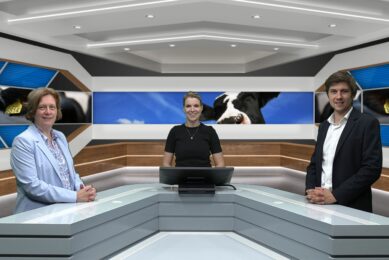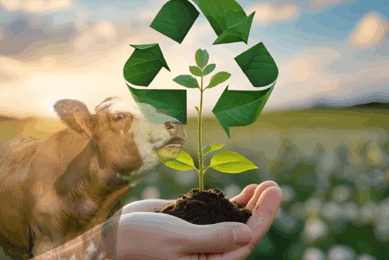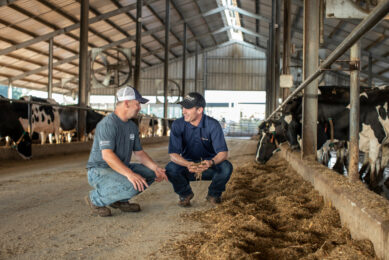Webinar on demand: Sustainable Dairy Farming

How can we make sure that a dairy cow gets what it needs while reducing emissions within the sector? And of course, there is also a lot of talk about better animal production. If you missed this webinar on 20 April 2023, or would like to catch the presentations again that highlight important topics on sustainable dairy farming, watch it any time on demand!
The concept of sustainable dairy farming takes on different meanings within the industry. From an animal health and welfare perspective to the nutrition aspect, there are constant questions and also some impressive solutions in sustainable dairy farming. Our expert speakers focused on pertinent topics and solutions in the dairy sector.
1. Marije van Tol, project leader, innovation methane at Schothorst Feed Research
Presentation: Feeding strategies to reduce methane production in dairy cows
In this presentation, Van Tol looked at the mechanisms behind methane production in the rumen. In recent years, a lot of research has been performed internationally to study different feeding strategies that can mitigate methane production. This presentation summarises the current knowledge on these mitigation strategies and their effectiveness.
She also answered some questions, particularly on how methane can be measured. She commented on the standard respiration chamber, which is optimal for trials.
2. Valentin Nenov, global ruminant manager, Phileo by Lesaffre
Presentation: Achieve low carbon dairy farming by optimising feed efficiency
Nenov looks at sustainability in dairy farming – a complex topic that focuses on animal welfare, farmer’s profitability and the environmental impact of farming. Supplementing yeast probiotic may help improve sustainability in dairy farming through optimising feed efficiency. This result is proven in a life cycle assessment taking into account various parameters related to sustainability and carbon footprint in dairy farming.
He touched on introducing Actisaf during the transition period: “If you want to improve feed efficiency, the best time to introduce Actisaf is during the transition period if it’s possible, or immediately after calving […] when they move from higher fibre diets to higher concentrate diets. By starting early in lactation, we can improve the rumen environment and microbiome and therefore feed efficiency.”
3. Sander van Zijderveld, ruminant lead, Cargill western Europe
Presentation: Methane mitigation strategies for dairy cows
In this presentation, Van Zijderveld highlighted the importance of methane mitigation for dairy production systems, as well as Cargill’s approach to supporting the dairy industry in this challenge: “While we continue to provide feeding solutions to optimise performance for more productive animals, we also recognise the need for more specific solutions to promote sustainability in dairy farms.”
He discussed 2 key approaches for more sustainable dairy farming: methane mitigation through increased production intensity (feed solutions) and direct methane reduction (SilvAir). He highlighted what farmer perceptions of SilvAir has been thus far and the use of SilvAir and its acceleration in markets.
Join 13,000+ subscribers
Subscribe to our newsletter to stay updated about all the need-to-know content in the dairy sector, two times a week.










